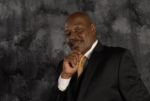Jesse Jackson Treats Blacks Like This Black Southern Slaveowner

November 16, 2003, in a syndicated column I wrote: “Over coffee and Key-lime pie, I posed the following question to a colleague: Name 10 things Jesse Jackson has done to tangibly help the black people he claims to represent.” In that column I also wrote that: “Two hours later, the question remained unanswered.” (See: Jesse Jackson – For Blacks Or Himself)
It is now nearly 14-years later to the day and the question remains unanswered. And it will remain unanswered because short of making fools of blacks, extorting money from major corporations, fomenting discord, cheating on his wife and having children out of wedlock, Jackson is devoid of substance.
He is also known for making even more asinine public statements than Al Sharpton. In short, he redefines “jejune.”
That said, “The Rev’run Jess-suh Jacks-sown” has managed to outdo himself with his latest backdoor attempt to extort money from corporate America and use blacks as useful idiots.
Jackson, referencing NFL owners’ long overdue attempts to reign in players who are kneeling and raising clinched fists as a show of protest, said that: “To go from picking cotton balls to picking footballs and basketballs without freedom is not very much progress.”
Exactly which of the slaves Jackson so glibly referenced would not have traded their master’s horse and wagon for the opportunity to own millions of dollars worth of exotic cars?
Mychal Massie
I’m familiar with “stupid” but even by Jackson’s low standards this gives a whole new meaning to “stupid.” As I said in VideoRant YouTube video, “I’m sure Jackson thought his quip was pithy and clever,” but if we are to accept his ridiculous statement as fact, “what has he gone from picking cotton to become”? (See: https://newdailyrant.wpengine.com/jesse-jackson-compares-nfl-players-cotton-pickers-what-does-that-make-him/)
I demand Jackson tell us what slave would not have welcomed the opportunity to go from picking cotton to raking in millions of dollars a year for playing a game, which until recently enjoyed tens of millions of viewers shouting out their names in nothing less than hero worship? C’mon Jesse, answer my question!!
I demand to know, which of the slaves Jackson referenced would not have gladly traded their shacks for multiple multi-million dollar homes in the most exclusive communities in America? Exactly which of the slaves Jackson so glibly referenced would not have traded their master’s horse and wagon for the opportunity to own millions of dollars worth of exotic cars?
And while we await “Rev-run Jacks-sown” to answer those questions, perhaps he can enlighten us with which of the slaves he referenced would not love to have the health benefits the NFL players enjoy? What about the pensions?
I will say this however, I seriously doubt that given the opportunity to have the tens of millions of dollars the NFL players earn, that 80 percent of the slaves would be broke and in debt within three years after retiring, like the NFL players. But I digress.
In all fairness there was one very wealthy Southern slaveowner who Jackson should have referenced who was, in his day, factually everything Jackson so fallaciously accused the NFL owners of being.
However, too be fair, there was a wealthy black Southern businessman and slaveowner, named William Ellison. Ellison built a small empire and increased the number of slaves he owned exponentially. He was also a member of the predominantly white Episcopalian Church and in August “1824 he was allowed to put a family bench on the first floor, among those of wealthy white families. Other blacks, free and slave, and poor whites, [were permitted to only sit] in the balcony.” (See: Dixie’s Censored Subject Black Slaveowners; Robert M. Grooms)
Ellison became one of South Carolina’s major cotton gin manufacturers selling as far away as Mississippi. From 1817 until the Civil War began, his advertisements appeared in every major newspaper across the state.
He “was so successful, due to his utilization of cheap slave labor, that [he put] many white competitors out of business.” Which as Grooms accurately points out: “Such situations discredit impressions that whites dealt only with other whites.”
There was also one other area in which Ellison engaged, in which even the majority of the white slaveowners refused to participate, and that was “slave breeding.”
With that said I would argue Ellison, the successful black slave owner and businessman more closely resembled Jesse Jackson than he did the NFL owners. The NFL owners pay their players well and if they are even marginally above average talent, teams/owners find ways to sweep the crimes committed by the players under the rug.
Ellison, unlike Jackson, didn’t extort money from the top corporations in America; he actually owned viable businesses for whose services other businesses gladly paid. But exactly like Jackson, Ellison was immune to shame or guilt regarding his egregious abuse of other blacks to amass his enormous treasury, which he also like Jackson pocketed for himself and his family.
Help share this article. Every $10 helps shares this article 1,000 times.
About the Author
Mychal Massie
Mychal S. Massie is an ordained minister who spent 13 years in full-time Christian Ministry. Today he serves as founder and Chairman of the Racial Policy Center (RPC), a think tank he officially founded in September 2015. RPC advocates for a colorblind society. He was founder and president of the non-profit “In His Name Ministries.” He is the former National Chairman of a conservative Capitol Hill think tank; and a former member of the think tank National Center for Public Policy Research. Read entire bio here